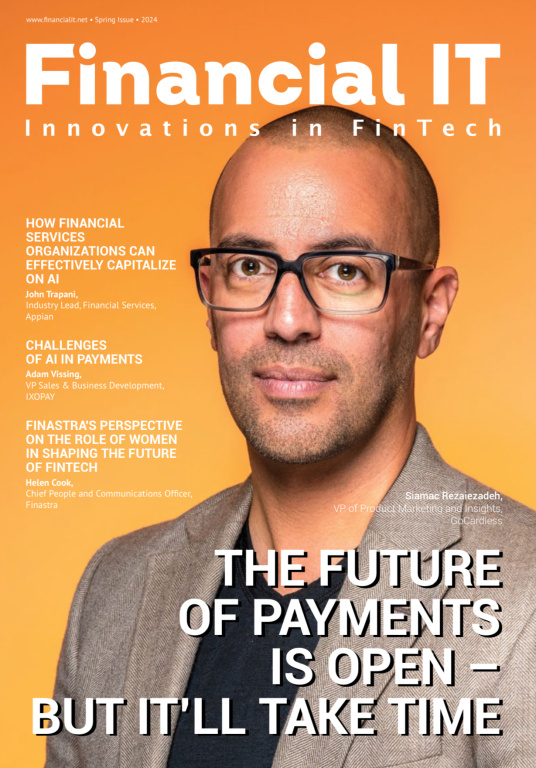Achieving Financial Parity for Gig Workers: How Banks are Embracing Fintech to Bridge the Gap

- Ali Hamriti, CEO and co-founder at Rollee
- 19.03.2024 09:45 am #banking #data
In 2024, working patterns look completely different from what they did twenty years ago. There is more flexibility, more options, and more autonomy for people to work in the way that suits them, leading to a diverse range of employment styles and income sources. It is therefore important that, as the economy evolves, so do the financial institutions that manage it.
Most banks and financial institutions operate on legacy systems built to service a traditional salaried employee. Unfortunately, this infrastructure doesn’t accommodate emerging sectors of the workforce, such as gig workers, facilitated by technology and the demands of businesses. For gig workers basic financial products like loans, mortgages, or credit cards are unproportionally difficult to acquire as banks are unable to verify their eligibility. This originates from the banks struggling with the integration of data, reduced pace of innovation, and constrained understanding of adaptive strategies.
Banking the gig economy is a business-critical step to not only to being able to generate more commercial opportunities but also a step towards fairer finance— benefitting the financial rights of independent workers and diversifying banks’ customers and services.
So how can banks overcome these challenges? Enter fintech, the financial institution's solution to operating with more agility, focused on innovation and development.
The gig economy is here to stay
Self-employed, freelancers and gig workers are a growing sector of today’s workforce and are becoming more commonplace as people source secondary income streams during the cost-of-living crisis. An estimated 7.25 million gig workers contribute £20 billion to the UK economy annually. This equates to over 20% of the UK workforce (at the end of 2022), an increase compared to 14.7% of the total workforce employed in the gig economy in 2021.
Despite the increasing significance of this demographic, they’ve yet to see financial products and services that accommodate their employment patterns and multi-source incomes. Meanwhile, financial institutions are missing out on a huge opportunity, because they lack the necessary data and infrastructure that will enable them to fully serve gig workers.
According to Rollee’s most recent Gig Economy Equality Gap report, 70% of UK gig workers struggle to receive approval to access financial products; while two-thirds (66%) were denied a loan since becoming a gig worker, despite having a good credit score and meeting affordability criteria. Meanwhile, one in three independent workers have missed out on a new home because of their non-traditional employment status. And gig workers are on average having to seek approval from three credit card or loan providers before being successful.
A new economy driven by data
Banks are not currently set up to service the new data types that accompany the gig economy. Rollee’s research revealed that an overwhelming majority (73%) of financial institutions surveyed admit that their current risk assessment processes are not able to see a complete picture of a gig worker’s payments, income, and employment records. And 34% are more likely to provide financial approval to a PAYE worker than a gig worker because they have greater transparency of traditional income and employment data.
Learning from the first-hand experience of both gig workers and banks, the main obstacle preventing banks from better serving this growing customer segment is their ability to access reliable data.
When attempting to leverage alternative income and employment data, financial institutions are often faced with the challenges of data integration. Integrating data from HR software and gig economy platforms like Uber via public APIs in-house can be fraught with challenges. Meanwhile, gaining access to private APIs entails negotiations with platforms that may end up in refusals, plus integrating multiple platforms poses scalability challenges. This approach also requires banks to invest significant resources from the backend, data, and DevOps teams, preventing data-driven decision-making and growth.
Even with these obstacles, banks and financial services need to be shown that evolving to service this growing customer segment is a valuable opportunity – not just a technical headache. Having access to more diverse data can have a hugely positive impact on the end-user experience for independent workers. Similarly, complete data provides a holistic view of the customer and fill the gaps in legacy infrastructure to inform better decision-making at all points in the bank customer journey. This, in turn, makes more customers eligible for more products, generating the bank more revenue.
Fintech can fill the gap
Open banking is often championed as a channel for open access of financial data – and whilst it does make retrieving data far simpler and more secure, its current focus on solely bank-based payment information alienates the likes of gig workers and freelancers relying on non-traditional income streams. Financial institutions must find solutions to integrate a broader range of data and access verifiable data points about any worker's income, employment status and working history no matter their job type.
Having a comprehensive view of this data ensures credit assessments will not just be based on spending habits and a full-time work contract - but also accounts for alternative considerations like gig workers' income history, working habits and ability to repay. While banks learn the requirements of an emerging economy, they must rely on the fintech ecosystem to lead the way in innovation and to drive this final frontier of open finance.
The fintech ecosystem is focused on working alongside banks and addressing this functional problem within society whereby millions of gig workers do not receive the same rights to financial products, as traditional workers do. With over a third (39%) of gig workers having considered giving up their freelance job for full-time employment, and the access to the financial system that accompanies it, sourcing a solution to fix this data disconnect will have a profound impact on many.
Gig workers and freelancers contribute significant value to the UK economy and deserve to be treated on a par with salaried workers— being afforded unobstructed access to financial services, including mortgages, loans and credit cards. To incorporate a new style of employment into their systems, banks must rely on the innovation of fintech to obtain comprehensive and diverse data, adapting to deliver fairer finance to this emerging sector of the economy.





















